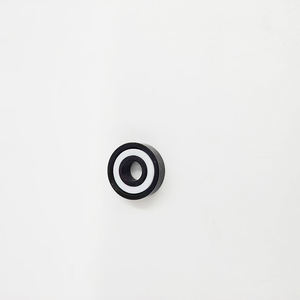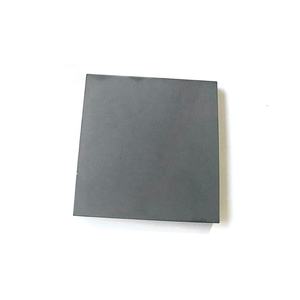Discover Premium Ceramic Products | Durability & Elegance United | Advanced Ceramics
PRODUCT PARAMETERS
Description
Overview of Silicon Carbide Ceramics
Silicon Carbide (SiC) ceramics are renowned for their outstanding mechanical properties, including high hardness, strength at elevated temperatures, and excellent thermal shock resistance. These materials are pivotal in cutting-edge industrial applications, from abrasives to aerospace components, due to their unique combination of properties.
Features of Silicon Carbide Ceramics
High Hardness: Exceptional wear resistance.
Thermal Shock Resistance: Can withstand rapid temperature changes.
Chemical Stability: Resistant to most chemicals.
High Thermal Conductivity: Efficient heat dissipation.
Low Density: Lightweight for its strength.
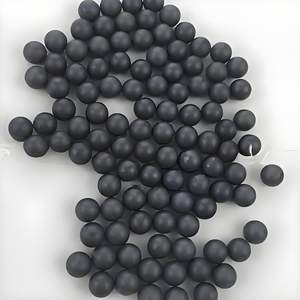
(SIC/Silicon Carbide Ceramic Foam Filter for Non-ferro Alloy Molten Metal Filtration)
Specification of SIC/Silicon Carbide Ceramic Foam Filter for Non-ferro Alloy Molten Metal Filtration
The SIC/Silicon Carbide Ceramic Foam Filter is developed for filtering system molten non-ferrous alloys. It eliminates pollutants like slag, oxides, and solid particles from metals such as aluminum, copper, and zinc. This improves metal top quality and decreases problems in end products. The filter is made from high-purity silicon carbide. This material makes certain stability in extreme temperature levels and rough chemical atmospheres.
The filter operates efficiently at temperature levels as much as 1600 ° C. It withstands thermal shock and corrosion from liquified metals. The porous structure has open cells with controlled pore dimensions. Common alternatives consist of 10, 20, or 30 pores per inch (PPI). This enables exact control over filtration efficiency. The filter catches tiny fragments while letting clean metal flow via smoothly.
Requirement dimensions range from 100mm x 100mm to 600mm x 600mm. Density ranges 20mm and 50mm. Custom-made forms are offered for specific commercial demands. The filters match existing filtration systems without significant changes. Setup is simple. Place the filter in the metal flow course before casting or pouring.
Utilizing this filter minimizes waste and decreases production expenses. It extends the life of downstream equipment by protecting against obstructing. The outcome is cleaner metal with improved mechanical residential properties. Industries like automobile, aerospace, and electronic devices depend on these filters for high-quality castings.
The silicon carbide ceramic foam has high mechanical stamina. It withstands pressure from liquified steel flow without cracking. Chemical inertness ensures no responses with alloys. This keeps steel pureness. The filters are reusable in some applications after cleaning. This depends upon operating conditions and contamination degrees.
Performance screening validates consistent filtering effectiveness. Third-party certifications guarantee compliance with industry standards. Technical support is available for choosing the best filter specifications. Elements consist of alloy kind, running temperature, and wanted pureness levels.
These filters work with induction heaters, ladles, and tundishes. They manage constant or batch handling. Very little maintenance is called for. Routine assessments make sure optimal efficiency. Replace filters when pore obstruction affects flow rates.
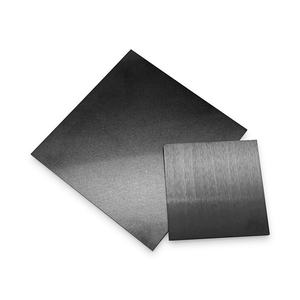
(SIC/Silicon Carbide Ceramic Foam Filter for Non-ferro Alloy Molten Metal Filtration)
Applications of SIC/Silicon Carbide Ceramic Foam Filter for Non-ferro Alloy Molten Metal Filtration
Silicon carbide ceramic foam filters play a key duty in cleansing non-ferrous molten metals. These filters get rid of contaminations like oxides, slag, and strong bits from alloys such as light weight aluminum, copper, magnesium, and zinc. The result is higher-quality metal for industrial use. The filters function by trapping unwanted products in their porous structure. This makes sure smoother steel flow and fewer defects in final products.
The product’s strength originates from silicon carbide. This compound handles extreme heat without breaking down. It stays steady even in hostile chemical settings. This makes the filters reputable for duplicated use in high-temperature casting procedures. They last longer than conventional filters made from materials like ceramic fiber or bonded sand.
In aluminum processing, these filters enhance mechanical homes of cast parts. Cleaner steel indicates less cracks or voids. This matters for automotive parts like engine blocks or wheels. Suppliers see fewer denies and reduced expenses. For copper alloys, the filters assist generate thick, consistent structures. This is crucial for electrical components calling for regular conductivity.
Aerospace and electronic devices sectors profit as well. Even small contaminations can trigger failings in delicate components. The filters make certain steel pureness fulfills rigorous requirements. They also deal with thermal anxiety far better than choices. Rapid temperature changes during spreading do not harm them.
The open-cell foam framework balances filtering effectiveness with flow price. Metal moves through smoothly without reducing production. This design likewise minimizes turbulence. Much less disturbance indicates fewer new oxides develop during putting.
Making use of silicon carbide filters reduces waste and power usage. Reusable choices lower lasting expenses. The filters work across different heater kinds and casting techniques. This flexibility makes them a functional choice for several factories.
The focus continues to be on improving metal high quality and operational efficiency. These filters deal with usual obstacles in non-ferrous metal handling. Their role in minimizing flaws and improving performance is clear across industries.
Company Introduction
Advanced Ceramics founded on October 17, 2014, is a high-tech enterprise committed to the research and development, production, processing, sales and technical services of ceramic relative materials and products.. Since its establishment in 2014, the company has been committed to providing customers with the best products and services, and has become a leader in the industry through continuous technological innovation and strict quality management.
Our products includes but not limited to Silicon carbide ceramic products, Boron Carbide Ceramic Products, Boron Nitride Ceramic Products, Silicon Carbide Ceramic Products, Silicon Nitride Ceramic Products, Zirconium Dioxide Ceramic Products, Quartz Products, etc. Please feel free to contact us.(nanotrun@yahoo.com)

Payment Methods
T/T, Western Union, Paypal, Credit Card etc.
Shipment Methods
By air, by sea, by express, as customers request.

5 FAQs of SIC/Silicon Carbide Ceramic Foam Filter for Non-ferro Alloy Molten Metal Filtration
SIC ceramic foam filters clean non-ferro alloy molten metals. They catch impurities before casting. Here are common questions about them.
What are SIC ceramic foam filters made of? These filters use silicon carbide. Silicon carbide resists high heat. It stays strong in molten metal. The foam structure has many connected pores. This traps small particles but lets metal flow smoothly.
How do these filters work? The filter sits in the metal path. Molten metal pours through it. Solid impurities like oxides or slag get stuck in the pores. Clean metal passes through. This reduces defects in final products. Filters improve mechanical properties of cast parts.
Why choose silicon carbide over other materials? Silicon carbide lasts longer. It handles higher temperatures than alumina or carbon. It does not break down in acidic or basic molten metals. This makes it suitable for alloys like aluminum, copper, or zinc. It saves costs by reducing filter replacements during casting.
Which metals work with these filters? They filter non-ferrous alloys. Aluminum alloys are common. Copper, magnesium, and zinc alloys also use them. The filters handle high-purity needs in aerospace or automotive parts. They do not react with molten metal. This keeps the metal’s chemistry unchanged.
How to pick the right filter size? Pore density (PPI) matters. Higher PPI means smaller pores. It traps finer impurities. Match pore size to impurity size in your metal. Filter thickness affects contact time. Thicker filters clean better but slow flow. Choose based on metal type, impurity level, and casting speed. Test different options for optimal results.
Filters need proper preheating before use. Cold filters crack from thermal shock. Store them dry to avoid moisture damage. Check for cracks or chips before installing. Replace filters if they show wear.
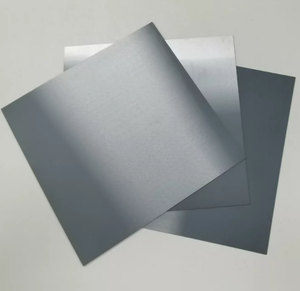
(SIC/Silicon Carbide Ceramic Foam Filter for Non-ferro Alloy Molten Metal Filtration)
REQUEST A QUOTE
RELATED PRODUCTS
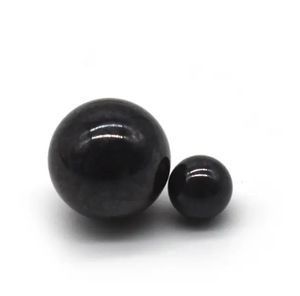
China Silicon Carbide Ceramic Silicon Carbide Plate Lightweight SIC Tile Sample Available
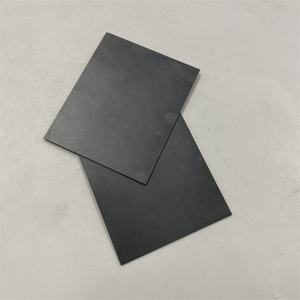
China White Ceramic Dish Grinding Wheel 1A1 Pattern Cup Vitrified Silicon Carbide for Stainless Steel Aluminum Aluminium Oxide
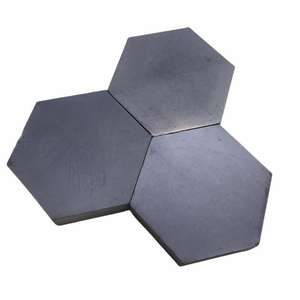
Customized Ceramic Boron Carbide Silicon Carbide Ceramic Plate SIC B4C Plate
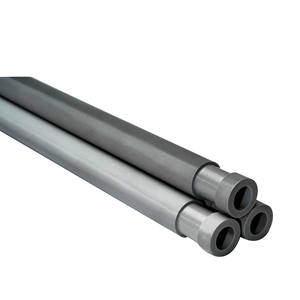
High Temperature Resistant Pressureless Sintering Silicon Carbide Ceramic Ring
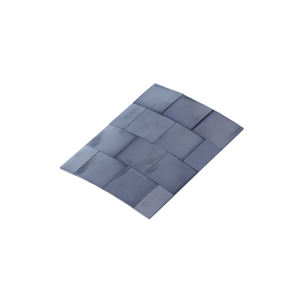
Precision High Strength Industrial Ceramic SIC Silicon Carbide Ceramic Plate Sheet Substrate Plate
